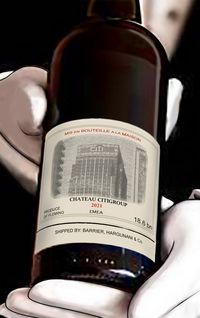Going global
Special purpose acquisition companies came to dominate IPO issuance at times in 2021. Citigroup extended its leadership in an asset class long core to the bank, making it IFR’s SPAC IPO House of the Year.
![]()
Citigroup has been involved in SPACs for decades and was central to IPO issuance in 2021, underwriting 107 US-listed IPOs that raised US$21bn, a league table topping 13.7% share of the record of about US$160bn SPACs raised in the year.
While the focus of this award is the IPOs, a steady supply of new issues relies on the blank-cheque companies successfully completing mergers, and Citi advised on 51 SPAC mergers with a combined value of US$157.3bn in the year, according to Refinitiv data.
“In our view, it was the year of equity advisory and the year of going public,” said Douglas Adams, Citigroup’s global co-head of ECM with James Fleming. “It’s only been in the last 18 months that either a direct listing or merging with a SPAC has become more mainstream.”
A total of 566 companies went through US stock listings in 2021, 322 via a traditional IPO, 238 by merging with a SPAC and six through a direct listing.
Early 2021 was a frenzied market environment where anything was possible.
One signpost of that heat was simultaneous prints in February by Churchill Capital, the serial SPAC issuer headed by former Citigroup rainmaker Michael Klein, of its sixth and seventh SPACs, with upsizes and greenshoes exercised on both.
Churchill Capital VII, structured with aggressive one-fifth warrant gearing, raised US$1.4bn, making it the second-largest SPAC IPO of the year and only the second time a sponsor group had simultaneously priced two IPOs. The offering was more than 10 times subscribed and achieved a 90% hit rate from one-on-one institutional meetings. Citigroup was lead-left on VII.
The Churchill IPOs coincided with rumours that EV maker Lucid Motors had agreed to go public through a merger with Churchill Capital IV, the US$1.8bn SPAC that Citigroup helped take public in July 2020. Confirmed days later, the merger carried with it US$2.5bn of PIPE funding at US$15 per share, the largest SPAC PIPE funding ever and the first at a premium to the US$10 IPO price.
In March, SoftBank Group followed with simultaneous IPOs, the US$200m SVF Investment 2 and US$280m SVF 3. Demand was sufficient for both SPACs to drop warrants for IPO investors. Dragoneer Investments followed that same month with its third SPAC, the US$400m Dragoneer Growth Opportunities III also structured without warrants. Citigroup was lead-left on all of those IPOs.
KKR’s SPAC debut in March, a US$1.2bn IPO with Citi as sole bookrunner, was a significant expansion of private equity into public equity.
Citi has not rested on its laurels, hiring John Collmer in October to head private capital markets within ECM globally.
“We realised a need to adapt the team and processes to get to companies earlier in their lifecycle,” said Adams. “The melding of private and public equity markets means a lot of traditional long-only institutions are being introduced to companies before they go public.”
While the US is home to nearly all SPAC listings, Europe woke up in 2021 with a flurry of IPOs but issuance is driven by the established market.
“It's very difficult to have a European SPAC business in isolation,” said Suneel Hargunani, co-head of EMEA ECM. “You need to understand what's going on in the US and what the sensitivities are as well. You've seen that now in Europe that you are having to overfund, have shorter maturities, everything that got the US market going again is how you structure in Europe. It's because there's a huge overlap of buyers regardless of listing.”
Citi was sole bookrunner in November on the first UK SPAC listing since the Financial Conduct Authority brought its rules for cash shells into line with other jurisdictions, raising £146.5m for Hambro Perks Acquisition Company.
Another high-profile trade was April’s €500m IPO of Pegasus Europe, where Tikehau Capital and Bernard Arnault are sponsors with former bankers Jean Pierre Mustier and Diego De Giorgi running the SPAC. The Pegasus quartet was back in December with a second European SPAC to raise €200m. They had hoped to wrap up a third Pegasus SPAC, this time listed in Singapore, though that finally hit the market in early January. Citi was a lead on all three, with all other banks limited to a role on just one.
To see the digital version of this report, please click here
To purchase printed copies or a PDF of this report, please email leonie.welss@lseg.com





